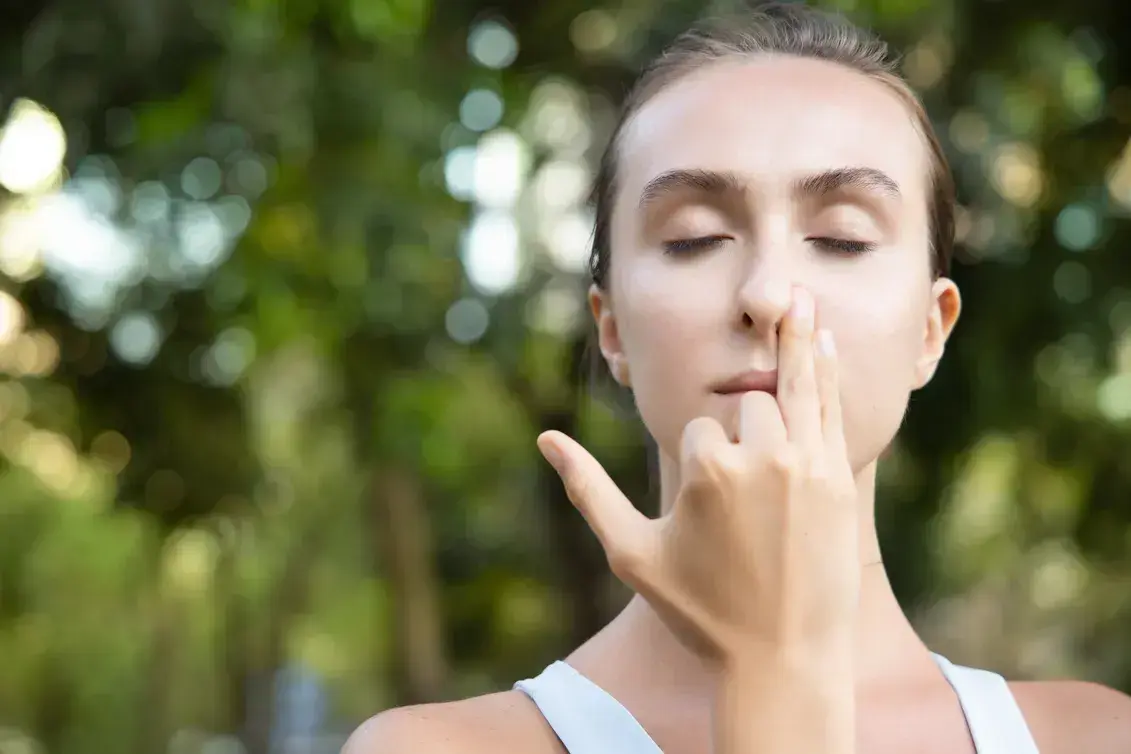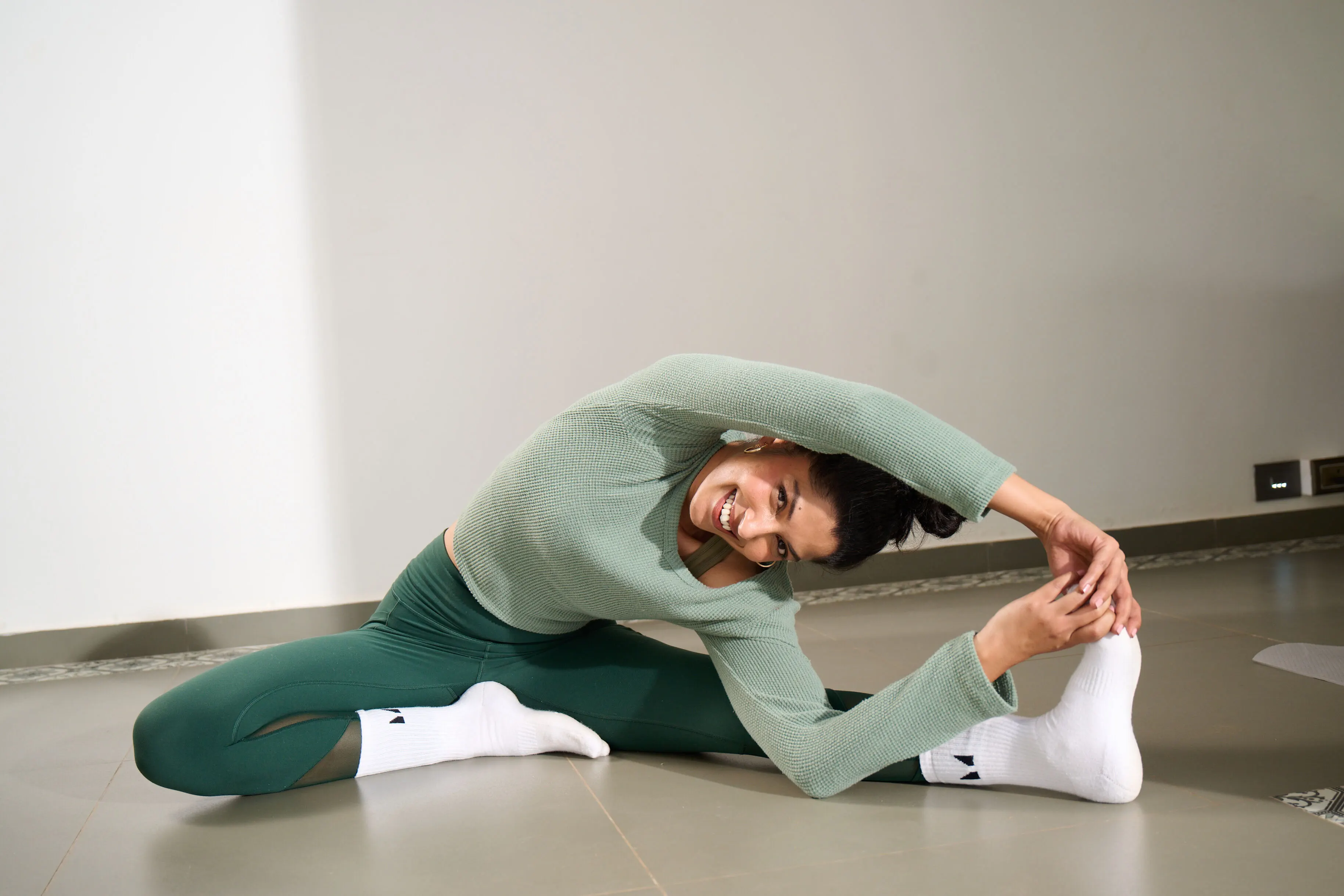Stretching your body, waking up with a smile and a grateful heart, and taking a few minutes to come back to a wakeful state is one of the best moments of a day. It’s that feeling when your eyes open after eight hours of an amazing night’s sleep, your body and mind fully rested and content. You feel energized and ready for the day ahead. Stress, exhaustion, worry are all foreign to you. All because you’ve had the best night’s sleep. Don’t we all love it?
Why Sleep?
Somehow, in our modern world, we’ve let life, ambition, attachment and desires get the better of us. We’ve let it come in the way of a good night’s sleep. With crazy work hours and office pressure, never-ending mom duties, exam stress, etc. we neglect how important sleep really is. Lifestyles and routines have changed. The food we eat affects our digestion, which affects our sleep. This elevates cortisol levels in our system, increasing stress. We take it for granted and assume 5-6 hours is good enough to get through our day. We don’t even realize when our body and mind are burning out and screaming for rest. Eventually, we’re facing disorders like insomnia, RLS (restless leg syndrome), REM sleep behavior disorder, among others. We then start relying on a late night show (Hello harmful blue light!), sleeping pills or alcohol to fall asleep.
Prioritizing sleep and rest is important to stay healthy, happy and content. A good night’s sleep can literally make our week, or even month! Many studies have shown how the lack of restful sleep leads to heart issues, kidney diseases, high blood pressure, diabetes, obesity, etc. It affects our metabolism, hormone regulation, and even immune system. A study has also shown how it greatly impacts focus, cognition and mood, reducing our productivity and efficiency. Another study showed how it affects our neural activity, influencing memory, learning and emotional regulation. If these aren’t reasons enough to prioritise sleep, what is?!

What’s Stopping Us?
The Mental Chatter
Very often the main reason we suffer from poor sleep quality is the inability to quieten our minds when we hit the sack. The voices of our bosses, kids, spouse and parents continue to cross our minds. We replay instances from the day or worry about how something will play out the next day. This difficulty in letting go happens because of attachments to someone or something. It could be a relationship, a goal or ambition.
Self-inflicted Pressure
Sometimes, we are our own enemies. We put excessive pressure on ourselves because of a materialistic attachment. We overthink what our boss said because we want to get promoted and earn more money, we worry about our kids getting straight A’s because we want them to go to a good college and earn good money. We replay an interview or a business meeting because we are anxious about closing that big deal to hit our desired annual revenue. And, when do these thoughts come to us the most? When we close our eyes and try to sleep.
Toxic Lifestyles
All these desires and attachments lead to a toxic lifestyle. Alcohol, streaming videos just before sleep, mindless eating, too much caffeine, and getting to bed at odd hours affect our system’s functioning. When we don’t respect our body, we cause damage in the long run. What’s the result? Sleeping disorders which open a bag of physiological diseases and disorders too.
Turning to sleeping pills for support also backfires on us. These pills, when taken for a prolonged period of time affect the central nervous system, neural activity and cause harmful effects of various organs.
How Much Should We Sleep?
Studies have shown the optimum amount of sleep varies between age groups.
According to the National Sleep Foundation, young adults (age 18-25 years) and adults (age 26-64 years) should get 7 to 9 hours of sleep but not less than 6 hours or more than 10 hours (for adults) or 11 hours (for young adults). Teenagers, especially, need an average of 9 hours. At an important stage of growth and development, this is an important factor for them to feel alert and rested.
While older adults (65 years and older) should receive 7 to 8 hours of sleep but not less than 5 hours or more than 9 hours.
How to Improve Quality of Sleep

A healthy routine
One of the main factors that can improve your sleep quality is creating a healthy, positive routine for yourself. All your responsibilities will always be there, but you are your first priority. Waking up early, having a glass of warm lemon water, meditating, journaling, joining a yoga class, going for a walk, having a warm bath before bed are all examples of simple practices you can add to your day to sleep better.
The right amount of activity
Yoga, and Ayurveda, teaches us the importance of staying active. Being tired, but not exhausted and drained, helps us sleep better. The right amount of activity stimulates our body and mind and keeps us content. If we have rested through most of the day or not done any stimulating activity, we become lethargic. A body and mind that is not tired, does not need more rest. And thus, will not sleep, leading to exhaustion the following day. Staying balanced is important.
Yoga and meditation
Regular yoga practice strengthens the vagal tone which controls the rest and digest ability in our bodies. It stimulates the parasympathetic nervous system, which is also responsible for rest and reduces stress levels. A one-hour, guided practice relaxes you, helps clear the mind and brings about a steady state of balance and calm.
Meditation not only helps us sleep better, but also reduces the number of hours we need to sleep. Sleeping less is often a sign of progression in meditative practices. A study found that in long term meditators, multiple hours spent in meditation are associated with a significant decrease in total sleep time when compared to matched controls who did not meditate. A study published by Harvard showed “Mindfulness meditation is just one of a smorgasbord of techniques that evoke the relaxation response.” Gradually, when you start practicing meditation for 1-2 hours everyday, you can begin to reduce sleep to about 6-7 hours (in adults). Another article has shown researchers found that meditators sleep an average of 5.2 hours per night, compared to 7.8 hours for the non-meditator group. Experienced meditators tested well on their mental performance and had no signs of sleep deprivation, regardless of their lesser hours of sleep.
When we Sleep Well
A good night’s sleep is one of the best things you can do for your body and mind! You will experience immense improvement in productivity, physical, emotional and mental health, better relationships and a content state of mind. Combined with yoga practices, you’ll start to drop attachments and prioritise your well-being first.
The Shvasa Way
At Shvasa we tailor our classes to help you achieve your goals. If you’re not sleeping right, we’ll guide you through practice to help you rest and relax. Our teachers will ease into dropping attachments, desires and unnecessary pressures on yourself. Our yoga programs are designed to work on every part of the body, as well as to bring inner peace, hormonal balance and mindfulness, helping you achieve your goals. Join a class 2-3 times a week and you’ll soon begin to experience the positive, life-changing benefits!











.jpg)













%201.png)

%201.svg)






%201.svg)